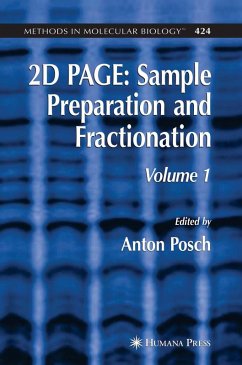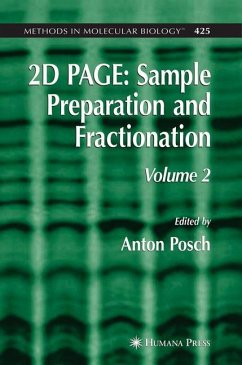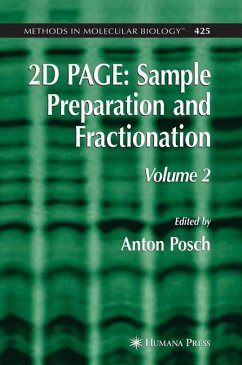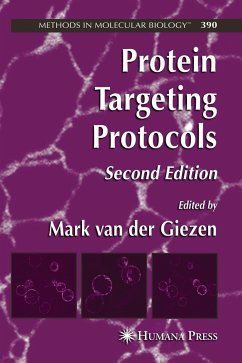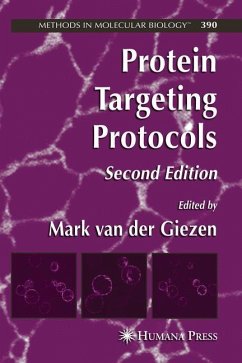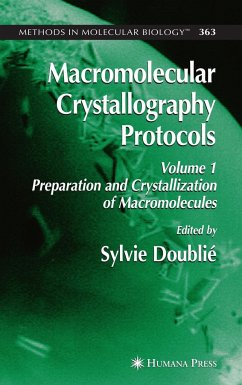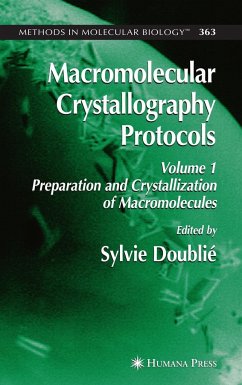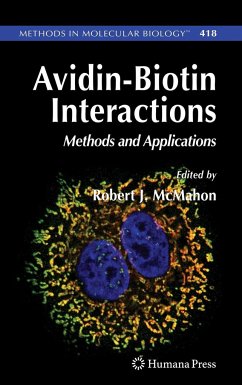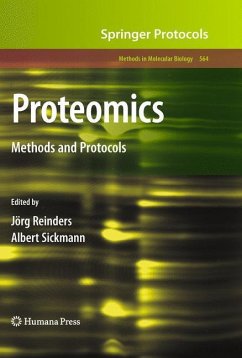
2D Page: Sample Preparation and Fractionation
Volume 1
Versandkostenfrei!
Versandfertig in über 4 Wochen
148,99 €
inkl. MwSt.
Weitere Ausgaben:

PAYBACK Punkte
74 °P sammeln!
This book, split into two volumes, presents a broad coverage of the principles and recent developments of sample preparation and fractionation tools in Expression Proteomics in general and for two-dimensional electrophoresis (2-DE) in particular. 2-DE, with its unique capacity to resolve thousands of proteins in a single run, is still a fundamental research tool for nearly all protein-related scientific projects. The methods described here in detail are not limited to 2-DE and can also be applied to other protein separation techniques. Because each biological sample is unique, a suited sample ...
This book, split into two volumes, presents a broad coverage of the principles and recent developments of sample preparation and fractionation tools in Expression Proteomics in general and for two-dimensional electrophoresis (2-DE) in particular. 2-DE, with its unique capacity to resolve thousands of proteins in a single run, is still a fundamental research tool for nearly all protein-related scientific projects. The methods described here in detail are not limited to 2-DE and can also be applied to other protein separation techniques. Because each biological sample is unique, a suited sample preparation strategy has to consider the type of sample as well as the type of biological question being addressed. The complex nature of proteins often requires a multitude of sample preparation options. In addition, sample preparation is not only a prerequisite for a successful and reproducible Proteomics exp- iment, but also the key factor to meaningful data evaluation. Interestingly, notmuch attention was paid to this area during Proteomics methodology dev- opment and therefore this book is intended to explain in depth how proteins from various sources can be properly isolated and prepared for reproducible Proteome analysis.





